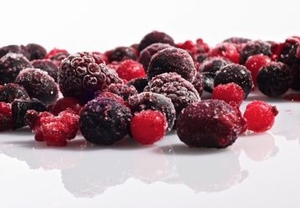 first hitting headlines nearly two months ago on May 31, news reports have largely fizzled out regarding the outbreak of hepatitis A linked to frozen organic berries from Townsend Farms and sold at Costco stores. But for 150 people known to have fallen ill with the virus, the ordeal has yet to end.
first hitting headlines nearly two months ago on May 31, news reports have largely fizzled out regarding the outbreak of hepatitis A linked to frozen organic berries from Townsend Farms and sold at Costco stores. But for 150 people known to have fallen ill with the virus, the ordeal has yet to end.Aaron Sirles, a father of five young boys, fell ill with hepatitis A in the days after he and his wife Polly received a notification from Costco. Their lives were turned upside down in the span of a day, Polly said, with work missed, summer plans canceled, and nearly a week spent in the hospital.
Six weeks later, Sirles is just now on the path to recovery. But his illness and others like it may never have happened if new rules in the Food Safety Modernization Act had been in place, said Sandra Eskin, director of the Food Safety Project at the Pew Charitable Trusts.
The Pew has counted 19 foodborne illness outbreaks linked to products regulated by the U.S. Food and Drug Administration in the 30 months that have passed since the FSMA was signed into law, Eskin said.
Eskin called the outbreak a “poster child” for the protections proposed by the FSMA. It covers three major pillars of the law: Produce rules, processed food rules and import rules, since the outbreak came from produce that was processed via mixing, bagging and freezing, and incorporated products imported from around the world. (The virus most likely came from pomegranate seeds imported from Turkey.)
“It’s just another illustration of how important it is that these rules be up and running as soon as possible,” Eskin said. “We’re well aware the rules aren’t final yet, but the type of protections all these rules could provide could have possibly prevented the outbreak or more rapidly resolved it.”
As with many of those affected by the hepatitis A outbreak, the Sirles had been on a health food kick when they decided to start making smoothies with the Townsend Farms berries several weeks prior to the recall announcement. The berries, advertised as organic and antioxidant, seemed like a healthful choice.
After they received a call from Costco about the recall, the Sirles chose to get tested for the virus. They were relieved when both of their tests came back negative, and they knew that their boys had already been vaccinated in school.
Despite the negative test, the Sirles still opted for a vaccine. Two days later, however, Aaron still came down with severe symptoms of nausea and stomach pains.
During the worst of his illness, Aaron relied on Polly to help him get to the bathroom. He needed round-the-clock care, she said, and he soon developed jaundice.
“As far as nausea and fatigue goes, on a scale of 1 to 10 he was a 9 or a 10 for the first two weeks,” Polly said. “We’ve never experienced anything like it.”
With their boys home from school for summer, the Sirles had to cancel all of their functions and summer plans due to Aaron’s illness, and he still tires significantly during work. Beyond the inconvenience, Polly said the experience has made her fearful of buying anything potentially harmful for her family.
“The emotions are still very raw,” she said. “If there’s any legislation that can help prevent something like this from happening to other families, I’m all for it.”
The Sirles have filed a lawsuit against Townsend Farms and are being represented by food safety lawn firm Marler Clark, which underwrites Food Safety News.
FDA recently extended the comment periods for the FSMA produce rules and preventive controls. Proposed import rules are still yet to be released.
Eskin said that she understands the FDA needs to take time to make all the far-reaching rules right. She did question the amount of time growers were being given to comply with the produce rules, which has been up to six years for some operations.
The Townsend Farms outbreak, she said, showed that produce may pose a threat worth acting on faster than that.
“We want people to eat produce, and frozen produce is a good, convenient option for families,” Eskin said. “Clearly, until we get the produce rules in place, these type of outbreaks are going to continue.”





